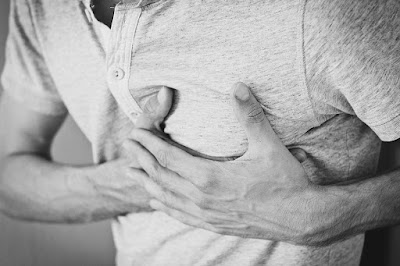We’ve all
heard that too much of anything is bad, it applies to the cholesterol in our
body as well. Too much cholesterol can cause severe health issues, such as high
blood pressure, cardiovascular disease and stroke. Cardiovascular disease
increases the risk of cardiac emergencies like a cardiac arrest or heart
attack. These are life-threatening emergencies, and a victim would require
immediate treatment for survival.
Proper
application of the life-saving CPR technique is the most appropriate treatment
in this regard. Select a certified training site for acquiring training, such
as the AHA certified CPR Kansas City. Certified instructors conduct the classes
through a series of audio and video lectures and hands-on practice.
Cholesterol-
Cholesterol is a waxy
substance produced by the liver to make hormones, vitamin D and substances that
help with digestion, meaning cholesterol helps your body function. Our body
creates just the right amount of cholesterol, but most people have that in
excess in their bodies due to consumption of foods like meat, poultry and dairy
products. Excess cholesterol can accumulate and eventually form plaque in the
body’s arteries, which can make it difficult for oxygenated blood to pass
through and carry nutrients to the rest of the body, straining your ticker thus
increasing your blood pressure (BP).
Keep your
cholesterol levels in check by taking a blood test called a lipoprotein panel that determines
whether or not your body’s cholesterol levels fall into the healthy range. The panel
measures the amount of LDL or “bad” cholesterol that causes accumulation of
plaque with less than 100 mg/dL being healthiest, and more 160 mg/dL being dangerous to your
health. Talking about HDL or “good” cholesterol, less than 40 mg/dL puts you at
risk of heart disease whereas more than 60 mg/dL is considered healthy and
protects against cardiovascular disease.
High
Blood Pressure- High
blood pressure (HBP), sometimes known as hypertension occurs when your blood
vessels become damaged when the ticker is forced to work too hard to pump blood
through the arteries. Accumulation of cholesterol just adds to the problem
since its plaque blocks the arteries that transport oxygen and blood.
It is in the
form of ratio that BP is recorded, where the top number of the ratio is called
the systolic that measures pressure of the arteries when the ticker beats while
the bottom number of the ratio is called diastolic that measures the pressure
in the arteries in between heartbeats. A normal BP consists of a systolic number
less than 120 and a diastolic number less than 80 whereas systolic numbers of
140 or higher and diastolic numbers of 90 or higher are signs of hypertension.
The fact
that HBP and high cholesterol are considered the major risk factors can be attributed
to their direct affect on one of the most important organs in the human body-
your ticker.
Leading a
healthy lifestyle is the key to healthy levels of blood pressure and cholesterol,
which involves quitting smoking, maintaining a healthy weight, exercising
regularly and following a healthy diet low in sodium.

Comments
Post a Comment